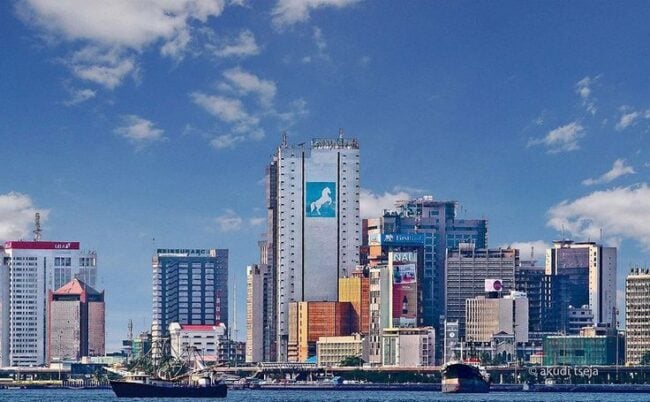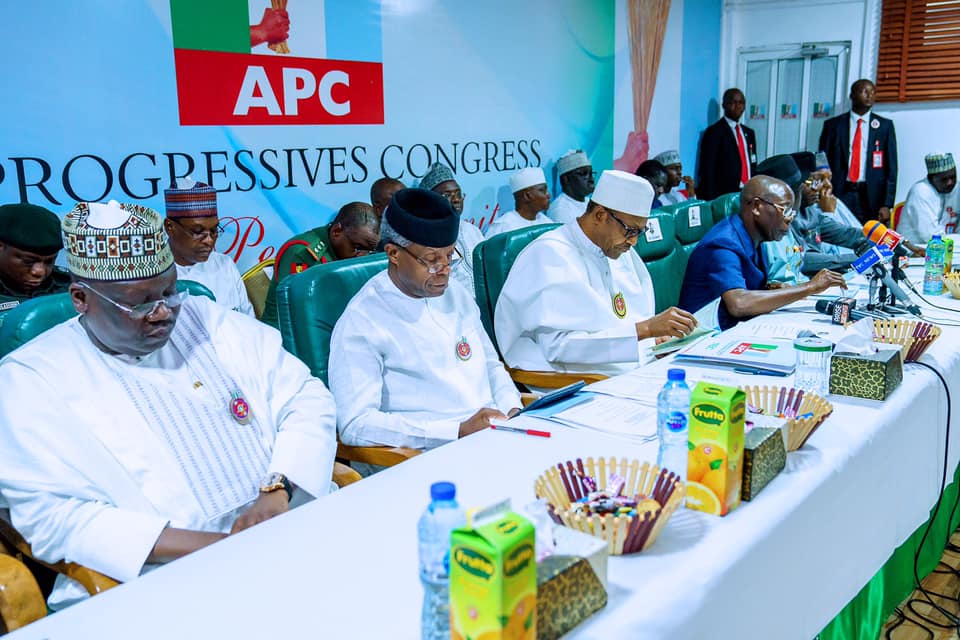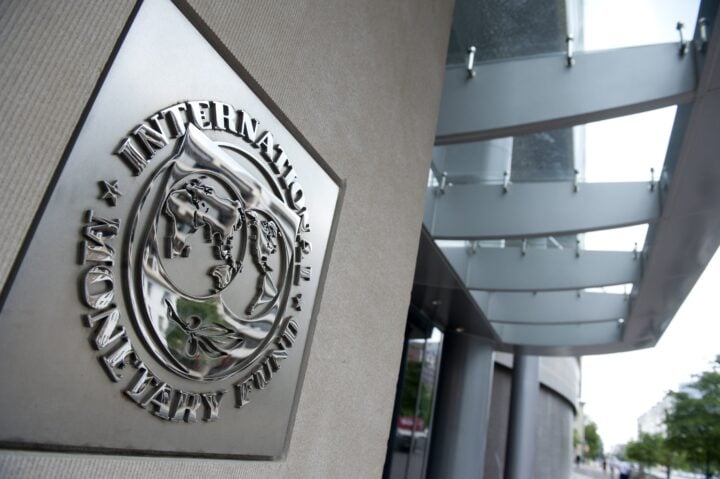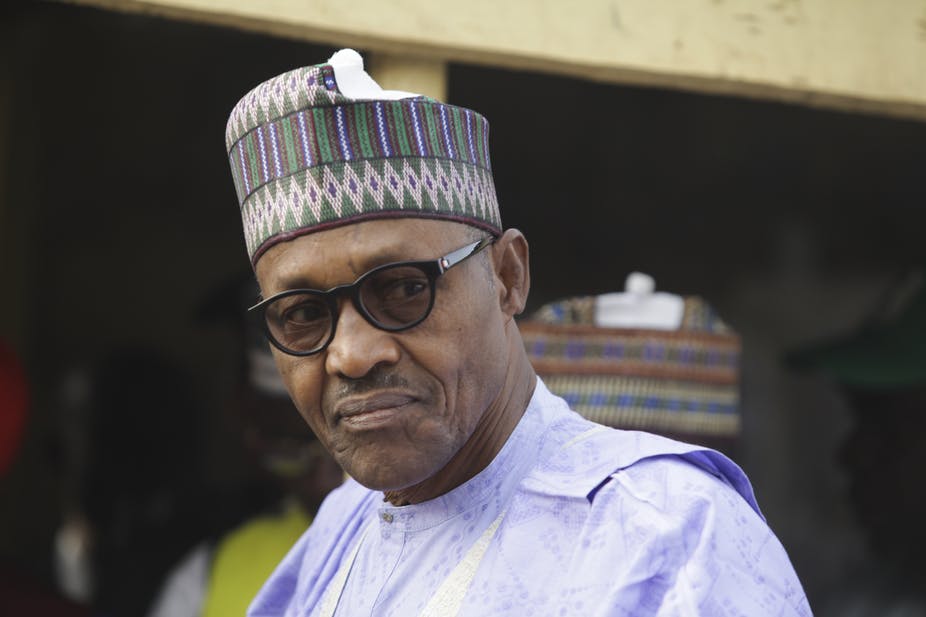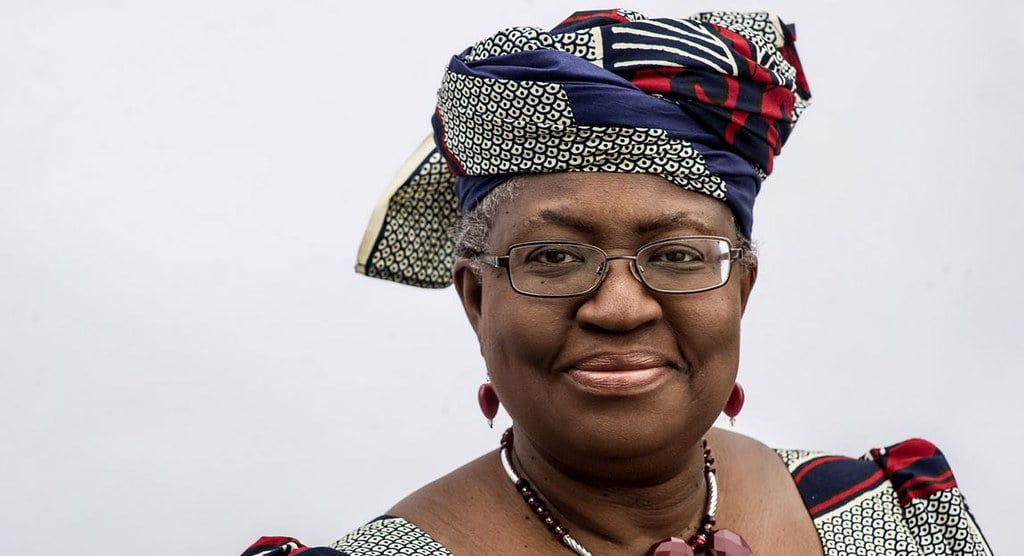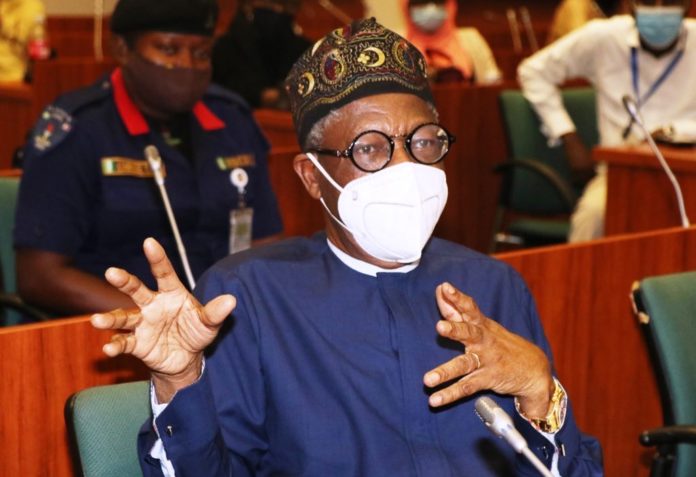The African Growth and Opportunity Act (AGOA) is a United States bipartisan trade legislation that was signed into law on May 18, 2000 by former US President Bill Clinton – it means AGOA is 20 years old this year. Initially, the act was planned to last for eight years but former President George Bush signed legislative amendments into law in July 2004 and extended the duration to 2015. Then on June 29, 2015, former US President Barack Obama also extended the validity of AGOA legislation by 10 years to 2025. AGOA must be a special piece of legislation to have received the attention and signatures of three US Presidents.
Most of the challenges we face in Africa – whether social, economic or political – are self-inflicted but the continent is still attractive to investors as the next economic frontier of the world – Africa will always be considered a priority. For example, Africa’s rate of return on investment is higher than any other region. Now you can understand why China and Russia are falling over themselves to gain strong footholds and presence in Africa. This also explains why Nigerian entrepreneur and Chairman of United Bank of Africa, Tony Elumelu, is promoting ‘Africapitalism’, an economic philosophy he developed. The key message of ‘Africapitalism’ is that the African private sector has the power to transform the continent through long term investments, thereby creating both economic prosperity and wealth. With Elumelu’s approach by empowering young entrepreneurs across Africa with seed money every year, the expected outcomes include job creation and economic prosperity, similar to the vision of Dr Akinwunmi Adesina, President of the African Development Bank. Dr Akinwunmi has also continued to advocate that we can turn agriculture into a wealth creating sector in Africa.
With the growing presence of China in Africa, it can be argued that AGOA is the perfect response to advance US interests in Africa. The point must be made that we no longer need aid; what we need in Africa is trade and this was the primary motivation of the congress men and women – liberal and conservative groups — when they passed the AGOA legislation 20 years ago. Reflecting on the motivation to set up AGOA as a special feature sourced from AGOA website, Tom Sheehy, Principal of Quinella Global, a Washington D.C. – based public consulting company who also served on the staff of the Foreign Affairs Committee in the US House of Representatives, noted that the lawmakers were encouraged by a humanitarian concern and a sense that Africa would never develop if it remained so greatly marginalized from world trade. “The continent needed trade at least as much as aid, and that many African countries had potential to become important trading partners with the United States. They also felt that the world’s wealthiest economy could afford to give a leg up to the world’s poorest continent,” he added.
AGOA is a unilateral and non-reciprocal trade programme that prescribes duty free access into the United States for the export of goods from eligible Sub-Saharan African (SSA) countries. The primary objectives of AGOA are to: 1) promote increased trade and investment between the United States and SSA countries; 2) promote increase access and opportunities for US investors and businesses in SSA countries, and 3) promote economic development and reforms in SSA countries. AGOA is the cornerstone of US trade policy with Africa. In 2017 alone, American companies exported nearly $22 billion in goods to Africa.
Advertisement
Prior to AGOA, according to the FAQs recorded at AGOA website countries classified as developing or least-developed were able to export goods to the US under preferential (mostly duty-free) conditions under the country’s Generalised System of Preferences (GSP) scheme, which is similar to the GSP that many industrialised countries offer developing countries. However, the GSP legislation is subject to periodic renewal and from time to time expires, creating uncertainty for importers and exporters. The AGOA legislation meanwhile incorporated all products classified as GSP (approximately 4,500), meaning that African countries qualifying for AGOA preferences were not subject to the periodic expiry (or renewal) of the GSP legislation. In addition, the AGOA legislation classified more than 1,500 additional products as AGOA eligible, meaning that between 6,000 – 7,000 products are free of import duty into the US when produced in a qualifying AGOA beneficiary country.
The United States Agency for International Development (USAID) believes the future of development is enterprise-driven. As part of its strategy to reduce the cost of doing business in Africa; leveling the playing field and cutting through red tape to make investment and trade freer and fairer for everyone, USAID set up trade hubs in West Africa, East Africa and Southern Africa – North Africa trade hub will join soon. USAID is also engaging with partners across sub-Saharan Africa to deepen regional economic integration; promote two-way trade under AGOA, and attract investment that drives commercial expansion within the region and to global markets. The hubs have directly leveraged $1.3 billion in African exports under AGOA. Since 2004, the hubs have also created 46,000 African jobs, according to information available on USAID website. Many of these jobs are held by women who tend to invest job-related income into their families and communities.
Let us now shift our gaze to the West African Trade Hub and Investment which aims to catalyze economic growth in West Africa by utilizing the market based approach. The focus countries are Nigeria, Ghana, Cote d’Ivoire, Senegal, Burkina Faso and Niger. Through its co-investment fund, the trade hub will attract $300 million of new private investment, create 40,000 new jobs, and increase regional and international trade. In addition to its co-investment partnerships, the trade hub also provides technical assistance to businesses so they can benefit from AGOA. Technical assistance can be used to help improve standards, navigate AGOA procedures and regulations, facilitate linkages with U.S. distributors, and other areas. The primary objective is to increase the value of exports to the United States benefiting from duty-free status under AGOA.
Advertisement
The beneficiary countries which include Nigeria vary from time to time but only 38 African countries have AGOA beneficiary status at this time. What can make a country eligible to be an AGOA beneficiary includes upholding the rule of law, respect for human rights and labour laws, promoting economic prosperity and posing no threat to US national security. A report at AGOA website indicates that AGOA builds on existing US trade programmes by expanding the (duty-free) benefits previously available only under the country’s GSP programme. Duty-free access to the U.S. market under the combined AGOA/GSP programme stands at approximately 6,500 product tariff lines, including the tariff lines that were added by the AGOA legislation. Notably, these newly added “AGOA products” include items such as apparel and footwear, wine, certain motor vehicle components, a variety of agricultural products, chemicals, steel and many others.
The report also stated that when the AGOA duration was extended to 2015, a special dispensation relating to apparel was extended by three years to 2007; but in December 2006 these were extended to 2012. In 2007, the apparel “abundant supply” provisions were enacted, although these were repealed again in 2009. Their intention was to set requirements for local textile fabric sourcing where it was considered that sufficient quantities were available in AGOA-eligible countries; third country fabric (the provisions related only to denim initially) would thus first have to be sourced locally or regionally before third country imports could be utilised for onward exports of denim garments. A subsequent legislative revision in September 2012 extended the apparel provisions to the end of 2015 to coincide with the current expiry of the AGOA legislation.
The apparel provisions are unique in that they grant countries defined by the legislation as “lesser developed”, being those that meet certain income thresholds (GNP < $1,500 per annum in 1998) and which have implemented a special apparel visa system, favourable rules of origin (RoO) requirements. AGOA eligibility requirements are set out in Section 104 of the AGOA legislation. Only Sub-Saharan African countries are considered for eligibility, and with AGOA beneficiary status having been awarded to approximately 40 countries (this number changes from time to time). While the eligibility requirements are set out in the legislation, it is the United States which determines, annually, whether countries have met the published eligibility requirements. Beneficiary status may therefore be granted, or withdrawn, at the discretion of the US President.
Beneficiary countries have no recourse to dispute settlement in this regard, and this unpredictability is one aspect that differentiates AGOA’s non-reciprocal preferences to those contained in reciprocal and bilateral trade agreements. On October 2, 2000, former US President Bill Clinton designated 34 Sub-Saharan African countries as eligible for the trade benefits provided under AGOA.
Advertisement
According to Florizelle Liser, former Assistant US Trade Representative for Africa, “AGOA has resulted in a four–fold increase from $1.4 billion in 2001 to $4.1 billion in 2015 in the continent’s non-oil trade with the United States. AGOA has had a success in helping many African countries diversity their export portfolios.” It is evident that AGOA is providing the right incentives for beneficiary counties to become globally competitive by making economic and commercial reforms.
Some interesting key AGOA facts disclosed by the US Trade Representative (USTR) in 2018 but available at AGOA website are as follows:
- Total two-way goods trade between the United States and sub-Saharan Africa increased 5.8%, from $36.9 billion in 2015 to $39 billion in 2017
- Top US goods exports to sub-Saharan Africa: machinery ($2.3 billion), vehicles ($1.6 billion), aircraft ($1.5 billion), mineral fuels ($1.4 billion), and electrical machinery ($864 million)
- Top US export markets in the region: South Africa ($5 billion), Nigeria ($2.2 billion), Ghana ($886 million), Ethiopia ($873 million), and Angola ($810 million)
- Top US imports from sub-Saharan Africa: oil ($11.2 billion), precious metals ($4.1 billion), cocoa ($1.2 billion), vehicles ($1.2 billion), and iron and steel ($950 million)
- Top sub-Saharan African suppliers to the United States were South Africa ($7.8 billion), Nigeria ($7.1 billion), Angola ($2.6 billion), Cote d’Ivoire ($1.2 billion), and Botswana ($772 million).
- US investment in sub-Saharan Africa stood at $29 billion in 2016, the latest year available, down 23% compared to $37.5 billion in 2014. The three largest destinations for U.S. investment were Mauritius ($6.7 billion), South Africa ($5.1 billion) and Nigeria ($3.8 billion).
- Sub-Saharan Africa foreign direct investment in the U.S. stood at $4.2 billion in 2016, up 164% compared to $1.6 billion in 2014.
After 20 years of AGOA, where are we? A preference trade programme such as AGOA is very different from free trade agreements which African countries shy away from. AGOA has been a win-win partnership between the US and African countries — whereas AGOA has improved the lives of Africans, it has also enhanced US interests in the continent. Not all African countries have benefited from AGOA because they did not develop the required export strategy. No one is sure whether the United States will extend the duration of AGOA beyond 2025 but what President Donald Trump did was to introduce “Prosper Africa” to compliment AGOA. It is essentially a US government Initiative that unlocks opportunities to do business in Africa — benefiting companies, investors, and workers both in Africa and the United States. “Prosper Africa” is helping to deepen US-Africa trade and investment relationship through AGOA.
With the devastating impact of COVID-19 on African economies, it can be argued that AGOA legislation should be extended beyond 2025 through another act of Congress. Nigeria is feeling the severe impact in revenue loss with the collapse of oil prices; the economic impact of the global pandemic is widespread with the World Bank saying African economies will shrink by about 5%.
Advertisement
“While AGOA hasn’t met all of its lofty goals, the trade legislation has helped lift many Africans out of poverty,” Sheehy argued further, as he reviewed the highs and lows of AGOA after 20 years. “AGOA has managed to economically uplift tens of thousands of Africans, if not more, providing many with their first formal sector job. Several U.S. retailers have used AGOA to source apparel from Ethiopia, Tanzania, Madagascar, and elsewhere. South Africa exports BMW autos to the U.S. under AGOA, showing that the continent does have world-class manufacturing ability.
“Yet Africa remains a very small U.S. partner, with two-way trade levels only starting to stabilize at around a modest $40 billion after falling precipitously with the 2007-08 global financial crisis. And Africa’s role in world trade has remained stagnant, at around only 2%. Looking back, AGOA supporters underestimated the challenges of boosting international trade and investment on the continent. Poor infrastructure, high shipping costs, and lax rule of law continue to stifle commerce. While some African countries have benefited substantially from AGOA, many others have not. Yet their faith in Africa’s potential has been borne out by impressive economic growth in some countries, including Ethiopia, while a young generation of technology-savvy African entrepreneurs is driving the continent forward,” he added.
Advertisement
While it can also be argued that benefits for participating counties are uneven, Nigeria can do more under AGOA because what we export mainly under the programme is oil. However, with the slump in oil prices, we really have no choice but to look more into the non-oil sector. Currently, petroleum products accounts for 67% of the AGOA trade imports. “AGOA has had important successes but improvements need to be made to the programme,” observed Witney Schiedman in a report available at AGOA website sourced from Lexology. “The legislation, which removed all tariffs on 6,400 products available for export to the U.S., helped to move the U.S.-African relationship from aid to trade, from donor-recipient to one of mutual benefit and gain,” she stated.
Apart from the fact that only a small number of nations have taken advantage of the legislation, the other threats to AGOA, according to Schiedman, are the dramatic changes that have occurred in Africa in the twenty years since President Clinton signed the law into effect. “The region has become home to half of the world’s twenty fastest growing economies and a middle class in the tens of millions. The African Continental Free Trade Agreement (AfCFTA) is poised to significantly increase intra-regional trade. In addition, China has overtaken the U.S. as the continent’s leading trade partner, the European Union is implementing Economic Partnership Agreements (EPAs) across the continent and countries such as Turkey, India and Russia have become significant commercial actors on the continent. It is time therefore to update the AGOA framework. Most specifically, reciprocity needs to replace the non-reciprocal structure of the current trade relationship,” she added.
Advertisement
We can also examine AGOA in the context of the African Continental Free Trade Agreement (AfCFTA) launched last year by the African Union (AU) to lower trade and investment barriers, boost competitiveness, attract investment and promote free trade between African countries. Then there is also the issue of the on-going negotiations between the United States and Kenya for a bilateral trade deal (free trade agreement) which both countries hope will be replicated across Africa. We do not expect AGOA to last forever but it appears the coronavirus damage on African economies is a dis-incentive to American investors. The solution, from the US perspective, is to forge separate bilateral deals with African countries which clearly undermines – rather than enhance – AGOA objectives.
Schiedman cautioned the Trump administration to jettison its “time-consuming and unproductive effort” to find a single African government with whom to negotiate a “model” free trade agreement as it is doing currently with Kenya and double down on its welcome endorsement of the African Continental Free Trade Agreement. “Supporting the implementation of the AfCFTA and ensuring American competitiveness in all of Africa’s markets is the most immediate and important U.S. commercial objective in the region,” she concluded.
Advertisement
Revising the AGOA framework and extending the act beyond 2025 should therefore be considered a priority by the Trump administration. In Nigeria, the Nigerian American Chamber of Commerce (NACC) has facilitated training and capacity building programmes for SMEs keen on exporting their goods to the United States under AGOA. The training modules include eligibility criteria and how to prepare goods for shipment. On June 24, 312 participants attended a training organised by NACC using the Zoom meeting app. The topic was “Using Technology to Boost Export Competitiveness and Domestic Trade in the Post COVID-19 Era”. An earlier training which held on May 14 with 100 participants was organised by the West African Trade Hub in conjunction with NACC and it focused on “Export Documentation under AGOA FDA Registration & Food Labeling/Registration.”
Other upcoming training programmes being planned by the Chamber include “Maximising the Prospects of AGOA and Prosper Africa” and “Trade Financing”. Otunba Oluwatoyin Akomolafe, the National President of NACC and Chairman of Index Brook, an oil and gas services company, is of the view that AGOA offers unique opportunities and attractive incentives for Nigerian SMEs. “The Nigerian American-Chamber of Commerce working closely with the US Commercial Service will continue to support Nigerian businesses wishing to access US markets with their goods with the information they need,” Otunba Akomolafe assured.
Braimah is the vice-president of the Nigerian American Chamber of Commerce, and he works as a PR and marketing strategist in Lagos
Views expressed by contributors are strictly personal and not of TheCable.

